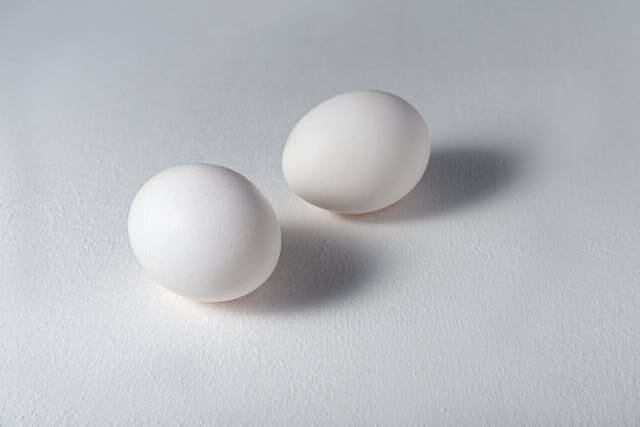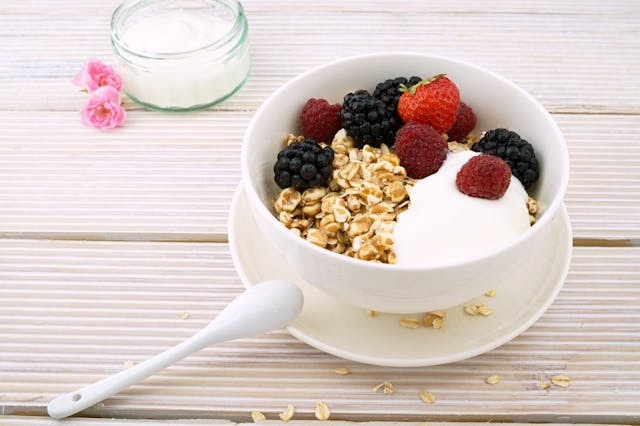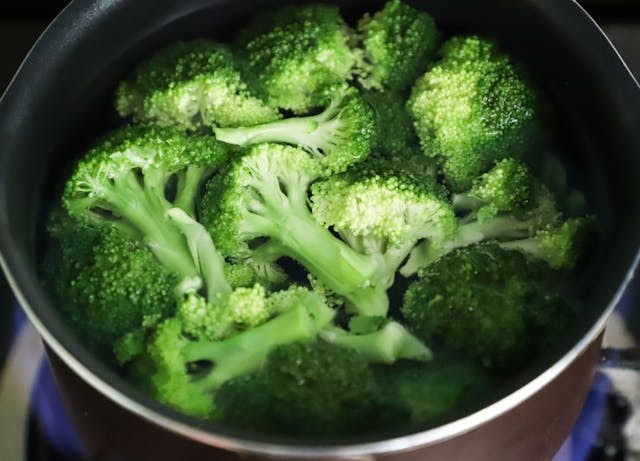
Top Protein Rich Foods for a Healthy Diet
Time to read 4 min
Time to read 4 min
There are a range of protein rich foods that are vital for a healthy diet and to maintain healthy weight long-term. You can add these foods in a number of ways, such as through smoothies, shakes, salads, cuisines, and bars.
These protein rich food options are also ideal for anyone looking to gain muscle mass over time, as well as maintain healthy weight for pregnancy, through old age, or when recovering from an illness or injury. You can also improve your strength by optimizing your protein intake.
You can select these high protein foods and get your essential amino acids as well as quality protein options for longevity and wellbeing.
Eggs are one of the best sources of protein and are abundantly available everywhere. You can get around 7gms of proteins in one egg, which is why it is one of the best choices of high protein foods. Not only is egg high in protein, it is a great source of B vitamins and various nutrients.
You can get around 30gms of proteins in about 100 gm of chicken, making this a key source of protein for body-builders, gym goers, and everyday people. You can check how much protein is required per your age and body weight, and get a variety of cuts as per your choosing.
Lentils are a great plant based protein or vegetarian protein source. It also contains the essential amino acids leucine and lysine which are key for muscle growth and sustaining healthy body weight. You can prepare lentils in a variety of ways, making them a vital source.
You can get around 11 gm of protein per cup in some cases, depending on the source of cottage cheese and the quality of production. You can also consume cottage cheese in different preparation, making this a highly versatile source.
Yogurt can be a great way of getting protein and probiotics into your system. Yogurt can be available at any general store and can be prepared at home, which is why it is is one of the few protein sources that are some of the easiest to consume.
Salmon is another fish source of protein and is a great way to get your healthy fatty acids along with protein. You can also prepare salmon at home or order it at restaurants and get sodium, potassium, and B12 through this food.
Tuna may not be available all year round, and should be prepared properly to consume for its proteins. You can get around 20-22gm of proteins depending on how the tuna is prepared. You can also opt for other seafood items such as mackerel, cod, etc.
You can get around 3 gm of proteins in an assorted range of nuts, with your normal intake of healthy fats and other nutrients. You can consume nuts directly, making them a great source of protein.
Green leafy vegetables, such as broccoli and spinach, can be excellent sources of proteins overall. You can improve your intake of protein through the consumption of these vegetables in salads, soups, sauté, and sabzi forms.
Pea and pea protein may be one of the best options for vegan or vegetarian sources of proteins. You can improve your protein intake by consuming peas in the form of powders or sabzis for your health. Peas are around 24–32% protein in their natural form, which can be great for improving your overall levels.
If you are experiencing these symptoms at the same time or at distinct times, then your body may be deficient to some extent in proteins.
You can get muscle loss or issues with muscle mass development, when your protein levels are too low or your protein sources aren't diversified and high quality.
You can get a sense of weakness overall, which may continue throughout the day for multiple weeks. This can be connected to a vitamin or protein deficiency, which is why at-home testing is important.
You can experience lower levels of strength and overall weakness at the same time when you have low protein levels. You should also check your levels of healthy fats being consumed so that you can ensure optimal health.
Children may experience stunted growth when they have minimal protein intake in their diet. You can prepare protein rich meals for their school tiffin and ensure that their snacks are high in protein as well.
In some cases there may be swelling present when there is a deficiency in protein or other vitamins & minerals. You can experience this in your extremities as well as get a general sense of weakness along with this.
You can get weaker bones or bone injuries, which could lead to issues with long-term bone healing and timely bone development as a part of your skeletal system. Kids can also experience this issue which is why they need optimal proteins.
Proteins are vital for developing antibodies, which is why you can experience immunity issues when you have a protein deficiency. You can also check for signs of immune health issues by checking for WBC count and your overall protein consuming.
* * Medical Disclaimer - The following information is for educational purposes only. No information provided on this website, including text, graphic, and images, are intended as substitutes for professional medical advice. Please consult with your doctor about specific medical advice pertaining to your condition(s).

